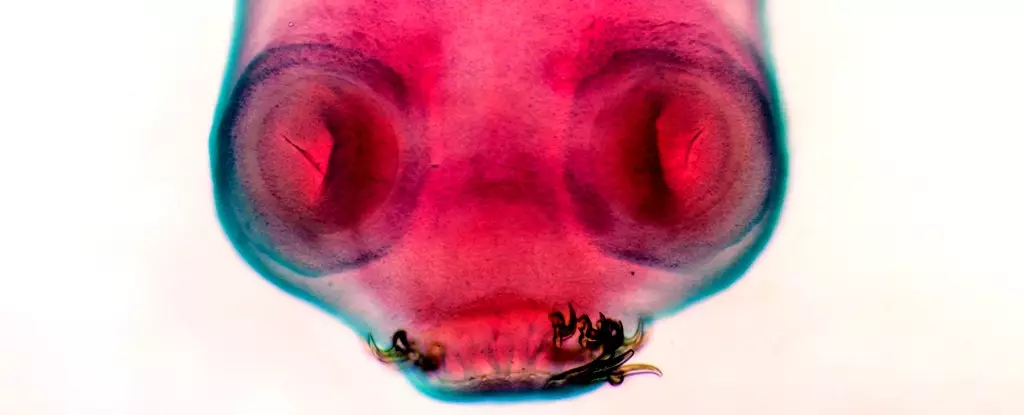In a peculiar case of parasitic infection, a middle-aged man from Florida found himself facing a rare and alarming health issue. This man, with a history of migraines, sought medical attention when his headaches became increasingly severe and unresponsive to typical treatments. Upon undergoing a CT scan, the source of his troubles was unveiled – his brain was infested with tapeworm cysts.
The tapeworm, known as Taenia solium or pig tapeworm, typically infects humans through the ingestion of undercooked pork containing tapeworm cysts. Once inside the human body, the parasite latches onto the intestinal wall using its hooks and suckers. It can grow up to two meters in length and live in the host for up to five years, releasing thousands of eggs which are excreted in feces. This form of infection is usually asymptomatic and easily treatable with anti-parasitic drugs.
In the case of the Florida man, the presence of tapeworm cysts in his brain was a puzzling scenario. Consumption of undercooked pork typically leads to an intestinal infection, not one in the brain. Researchers postulated that the patient may have initially been infected with the intestinal form of the parasite and later reinfect himself through poor hygiene practices.
Neurocysticercosis, the condition resulting from tapeworm cysts in the brain, can lead to serious health complications if left untreated. It can cause seizures and is a common cause of epilepsy in regions with poor sanitation. The patient in this case opted for treatment with antiparasitic drugs and anti-inflammatory medication to manage the immune response in his brain, resulting in reduced lesions and headaches.
In regions where sanitation practices are lacking, tapeworm infections are more common due to the consumption of contaminated food and water. With increased globalization and travel, cases of neurocysticercosis are observed even in countries where the parasite is not endemic. The best way to prevent such infections is through good personal hygiene practices and ensuring that pork is thoroughly cooked before consumption.
The case of neurocysticercosis serves as a reminder of the potential threats posed by parasitic infections and the importance of proper hygiene and food safety measures. By learning from the tapeworm’s opportunistic nature, individuals can take proactive steps to avoid encountering such unwelcome guests in their bodies. Opting for fully cooked pork and maintaining good personal hygiene are simple yet effective ways to prevent parasitic infections and safeguard one’s health.


Leave a Reply